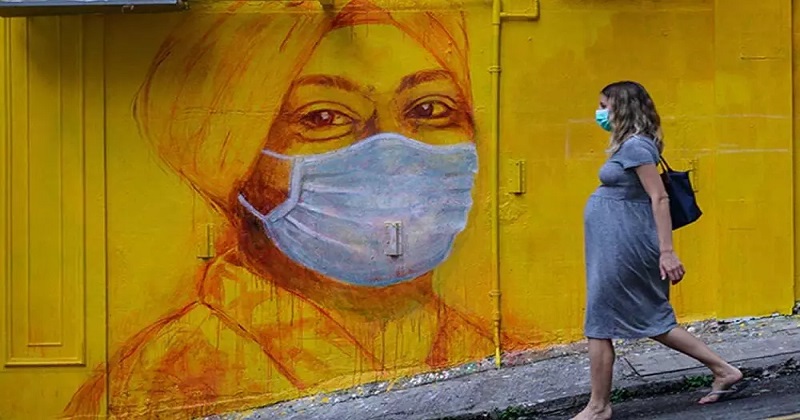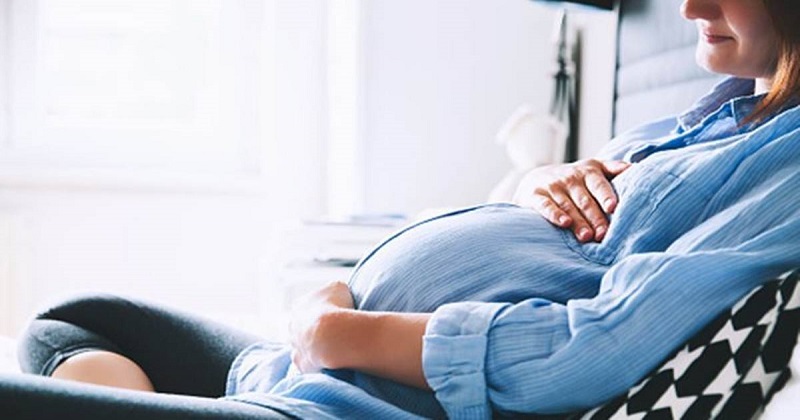
A report issued in “The Lancet” in September 2020 proposed that the second surge of COVID-19 in the UK hit pregnant women more strongly, though the definite cause for this was unclear. As India undergoes its most dangerous second surge, doctors are anecdotally demanding that the fresh variants of the coronavirus have been more proactive in pregnant women, with a clear increase in postpartum death.

A study by the National Institute of Health Studies also suggests that pregnant COVID-19 patients with critical signs were at a greater risk for cesarean delivery, postpartum hemorrhage, hypertensive diseases of pregnancy, and premature birth. Ravish Chawla, a Delhi resident, who lost his wife and unborn child to COVID-19, shared a video on Twitter of his wife, in her last days asking people not to take the disease carelessly. It was this video that that made the situation of pregnant COVID-19 patients into mainstream consideration.
The outcomes for babies of mothers afflicted with moderate to severe disease are also poorer with a higher incidence of preterm birth and birth asphyxia.
— Ruma Satwik (@SatwikRuma) May 16, 2021
Higher chance of catching critical COVID-19; Pregnant women, particularly those who are older, overweight, or have preexisting diseases like diabetes or hypertension are at a greater risk of contracting severe COVID-19. The WHO Guidelines state that pregnant women who incur severe disease, appear to more frequently need care in intensive care units related to non-pregnant women of reproductive age. Because of the changes that happened in their bodies and immune systems, they can be affected by respiratory infections.
Short regular prenatal checkups due to the huge danger of contaminations in hospitals ; A clinical article issued in October of 2020 in the International Journal of Gynaecology and Obstetrics states that ‘One?third of women had inadequate antenatal visits. The main cause for delayed health?seeking was lockdown and worry of contracting infection, resulting in 44.7% of pregnancies with complications.’ Occasional prenatal checkups could direct to difficulties later in the pregnancy which sets pregnant women and their children more at risk.
Resistance to CT scans ;Women who catch the virus and develop COVID-19 pneumonia would need CT scans to efficiently monitor their conditions. This increases radiation vulnerability to them and their unborn child. Though records state imaging of spaces other than the abdomen and pelvis do not put the baby in danger, women still seem reluctant to undergo CT scans, due to the peril of a potential miscarriage. Ravish Chawla remembered how his wife did not want to experience a CT scan, since she felt it might put her unborn child at risk.
Unclear information on mother-to-child transfer;While some statements hint that vertical mother-to-child delivery of the coronavirus is not viable, other studies imply that it is. The pregnant women are left perplexed, not certain what to believe or what activities to take. Moreover, the data on the actions to take post-delivery differs from sources. The WHO suggests that infants and mothers with presumed or verified COVID-19 “should be enabled to remain together and practice skin-to-skin contact.” On the other hand, The United States Centre for Disease Control and Prevention (CDC) suggests that facilities “consider temporarily separating the mother from her infant” until the mother is no longer deemed infectious.
"While we are waiting for official guidelines, FOGSI is working hard to ensure that the vulnerable group of pregnant and lactating women get the #COVID19 vaccine as soon as possible," says @ScissorTongue
to @DevinaB21.https://t.co/EjEQ0SC04Q— Quint Fit (@QuintFit) May 1, 2021
Regular and Historic Inaccessibility of Medical Services for Women; Historically, due to structural constraints, and they are vulnerable to economic and social status, healthcare is relatively difficult for women. Cultural norms connected with women’s general and sexual health make it so, that women in India are concisely possible to ask for medical help or go to the hospital when sick, related to their male counterparts. In Punjab and Haryana, more boys below 5 are admitted to hospitals than girls, this is not because girls do not fall sick, rather because when they do, it is not a priority to get them admitted. This divide is even greater in rural regions of the nation, which have been affected extremely difficult in the second surge. Here it is necessary to remark that 65% of the population in India, stays in rural regions.
In other news, found out yesterday that my newborn has antibodies for the COVID spike protein because I got vaccinated during my pregnancy. Science ROCKS!
— Dr. Prerana Shrestha (@prerana123) April 23, 2021
Government’s guidelines;While the ICMR has issued guidelines for the supervision of pregnant women in the COVID-19 pandemic, the crowding of hospitals, even in urban regions, makes these hard to understand. It took two days for Noida resident Utsav Kumar to get a hospital bed for his pregnant and COVID-19 positive wife. He stated that she was before admitted at Shardha Hospital in greater Noida but was excluded from there because the staff was overworked and could not take proper care of her. Doctors report congestion in hospitals, administrators at Shardha Hospital state that “The hospital currently has only 215 beds but there are 280 patients that we have to attend to.”
Vaccinating pregnant women; The Ministry of Health and Family Welfare has suggested against pregnant and lactating women getting immunized. This is because there is not sufficient clinical data on pregnant women about Covaxin and Covishield, the vaccines administered in India. Moreover, The National Technical Advisory Group on Immunisation (NTAGI) too advised that pregnant and lactating women be provided the vaccine. These recommendations will be transferred to the National Expert Group on Vaccine Administration (NEGVA) for consent before they are executed. In the USA, 90,000 pregnant women have been given the Pfizer and Moderna vaccine, with no security matters. These vaccines however are not given in India yet.
Read more; “Congress-Pandemic Tool Kit”; Booking hospital beds in advance, Spreading images of dead bodies
Therefore, pregnant women are twice exposed to the pandemic. Not only are they higher-risk patients, but they are also weak to obtain the proper vaccines and healthcare facilities. Despite the availability of informational protocols for pregnant women, the congestion of the public health system makes it hard to implement these. Traditional and cultural factors also curb the possibility of women asking for medical help, despite ailing health. These affect prenatal and postnatal care, putting the mother and child at an extended risk of the pandemic.

Post Your Comments